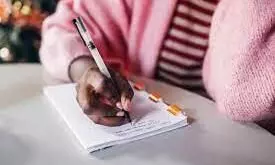
Abu Dhabi researchers develop AI to mimic handwriting
text_fieldsAbu Dhabi: Researchers in the UAE have developed an artificial intelligence tool to mimic handwriting using just a few paragraphs.
Researchers at Abu Dhabi's Mohamed bin Zayed University of Artificial Intelligence (MBZUAI) have achieved a significant feat in artificial intelligence, creating technology capable of convincingly imitating someone's handwriting based on a brief sample of written material. The team, which holds a patent granted by the US Patent and Trademark Office for this innovation, employed a transformer model - a neural network designed for contextual learning - to achieve this breakthrough, reported Bloomberg.
MBZUAI, considered the world's first AI university, has not yet released the feature to the public.
While this development opens possibilities for aiding individuals with injuries to write without physical effort, it also raises concerns about potential misuse and mass forgeries. The researchers emphasise the need for careful deployment, suggesting the development of public awareness and anti-forgery tools to mitigate potential risks.
Hisham Cholakkal, an assistant professor for computer vision at MBZUAI, stressed the importance of creating an "anti-virus for a virus" to address potential misuse.
Despite these concerns, the researchers expressed plans to apply their technology to real-world applications in the coming months and are actively seeking commercial collaborators.
Rao Muhammad Anwer, also an assistant professor of computer vision at MBZUAI, highlights the vast potential of this development, ranging from decoding doctors' handwriting to personalised advertising. Additionally, the technology could generate synthetic data to enhance the performance of other AI models in processing handwriting.
While the transformer model trained on publicly available handwritten texts can proficiently learn and write in English and French, the researchers acknowledge the ongoing efforts to extend this capability to handwritten text in Arabic.






















